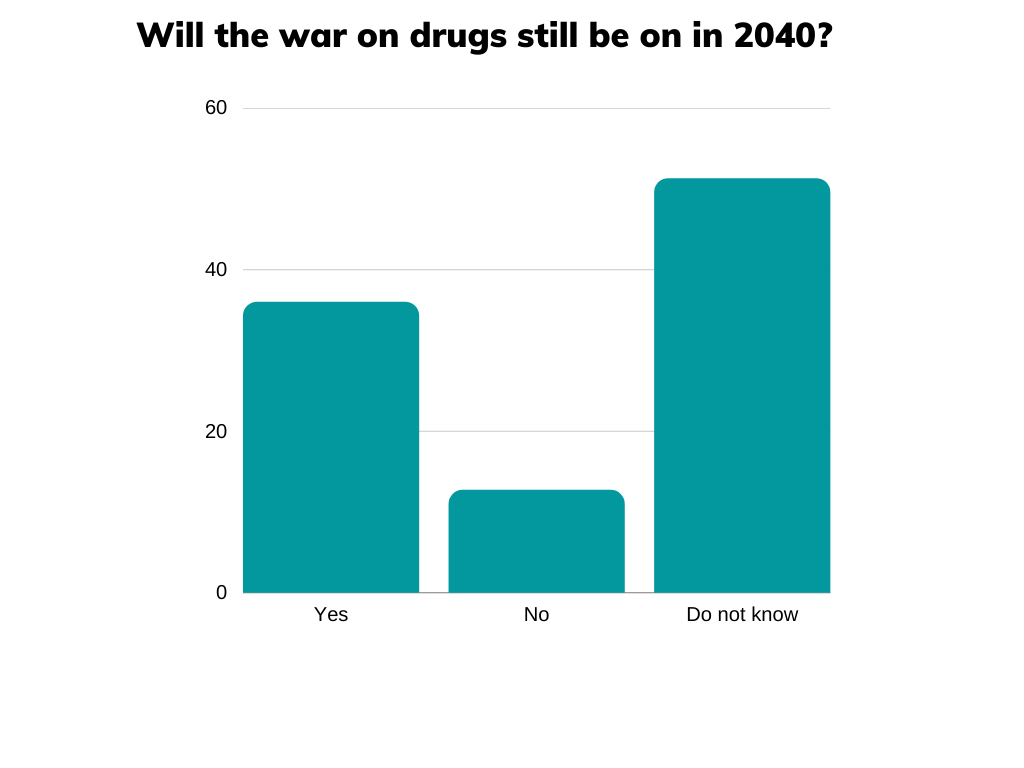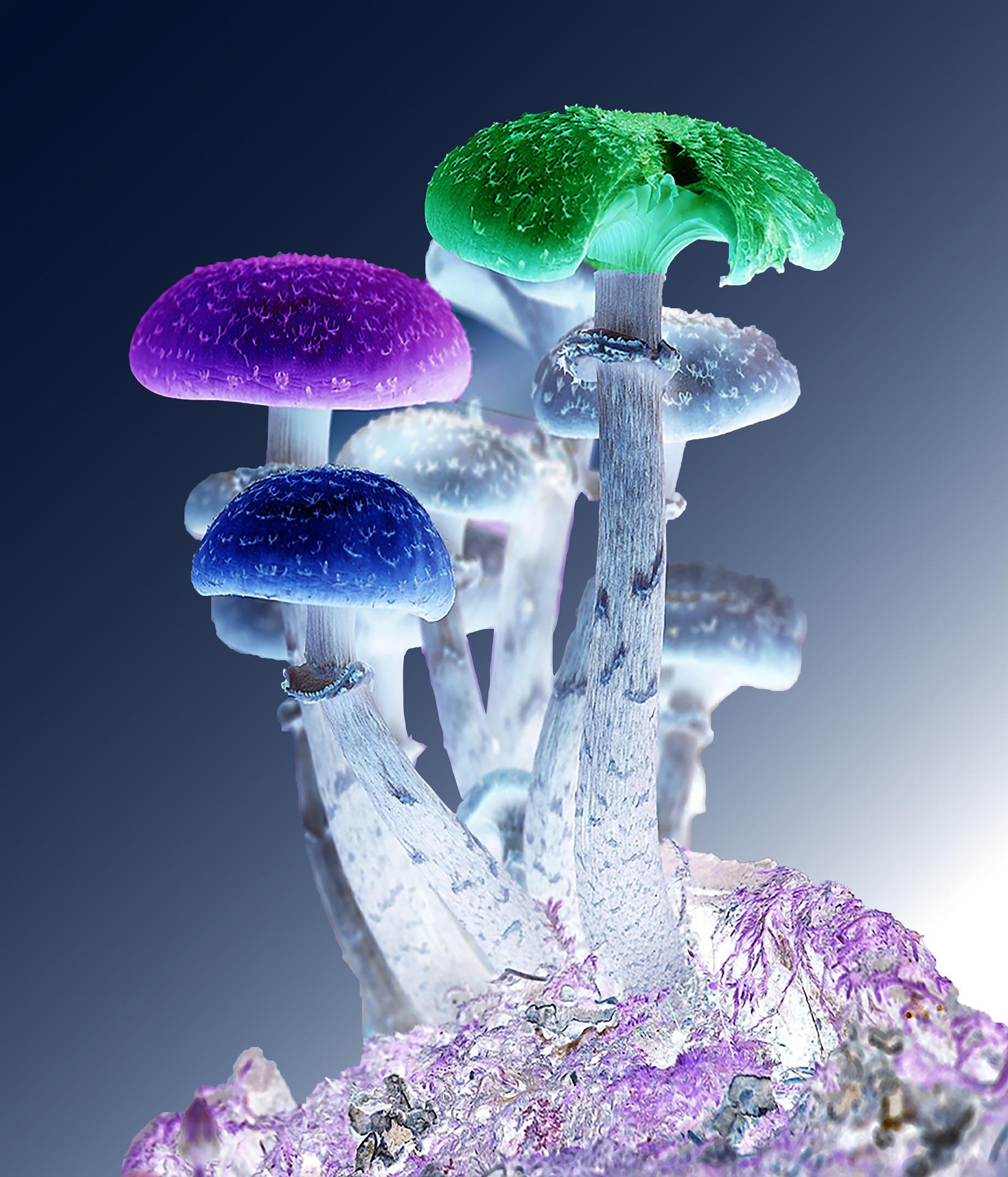
💡 Optimist's Edge: Forbidden substances - tomorrow's medicine?
Research on psychedelics is growing exponentially. The results when it comes to tackling depression and other mental health issues are striking. In this week's Optimist's Edge, Marco Borsari takes a look at the "psychedelic revolution" in medicine.
Share this story!
📉 What people think
Is the concept of "drug", as a substance to be absolutely banned for all individuals, still right and useful in today's context? Will the situation be the same in 20 years?
Only 12.7 percent of the respondents in our survey believe that the war on drugs will be over by 2040. More than a third of the respondents think that the situation in 2040 will be similar of today.

📈 Here are the facts
The research on psychedelics has restarted and has during the last 20 years achieved great results in treating a wide range of mental health conditions:
- Ongoing depression treatment: a study on Esketamine (a derivative of Ketamine) conducted by John Hopkins University led to the market release of an esketamine-based nasal spray, which can offer relief from depressive symptoms within hours, while common antidepressants are slow-acting
- Going further in the depression challenge: Imperial College London founded in 2019 the first Center for Psychedelic Research to deepen the treatment of chronic diseases with psychedelics: Psilocybin micro-dosing treatment is showing very remarkable effects in addressing deep depressive states by disrupting the brain's default mode network
- Facing eating disorders: Imperial College London is also conducting studies on Psilocybin to treat anorexia nervosa, the most fatal of all psychiatric conditions
- Effective post-traumatic treatment: Multidisciplinary Association for Psychedelic Studies (MAPS), under the guidance and regulations of the US Food and Drug Administration (FDA), is conducting a large clinical trial of MDMA for patients with post-traumatic stress disorder (PTSD), radically changing the way patients see the world around them
- Overcoming addictions: the famous amazonian psychedelic Ayahuasca shows good effects to cure cocaine and alcohol addiction, while Psilocybin can help longtime smokers to quit.
After years of prohibitionism, research on the beneficial effects of psychedelics is now growing dramatically.

There is also a trend toward easing regulations, even though these substances are still banned in most countries and bureaucratic hurdles, even for medical testing, are still many.
💡 Optimist's Edge
Increased awareness of the harmful effects of drugs together with very strict legislation is now leading to a very careful administration process, making these substances safer as well as performing surprisingly well.
💡 Experts speak about an upcoming psychedelic revolution in psychiatry, showing completely different effects from normal anti-depressant medicines.
For example, a controlled psychedelic trip with psilocybin micro-dosing seems to act as a quick reset of toxic thought flow, while MDMA-assisted therapy can change our worldview, making it easier to handle shocking events.
In this safe environment, addiction appears to be averted. Furthermore, side effects exist but appear to be reduced: for example in an MDMA large trial on 1,700 human subjects only one had a serious adverse reaction.
Rather than clandestine and dangerous use under prohibitionism, in the future we may turn to careful use of micro-dosing of drugs through a certified medical practice.

👇 How to get the Optimist's Edge
Around 800 million people are suffering from mental disorders. Most psychotropic medications are slow or inefficient in their treatment, while psychedelics research is growing at an exponential rate.
❓ So, how do you get the most out of this knowledge?
- Change the common point of view: go beyond the cultural limits on drugs and attend the world's largest psychedelic congress or delve into the science behind cannabinoids, then disseminate this knowledge to break existing preconceptions.
- Support and facilitate science: donate to deepen research on psychedelics or to cancel some bureaucratic hurdles by reclassifying them with respect to the most dangerous drugs, given today's higher scientific knowledge.
- Become an innovation maker: are you a medical student or psychotherapist? Join Imperial College's research on psilocybin or MDMA-assisted therapy with MAPS, to make the future come sooner.
You now have an advantage because you have gained this knowledge before most others –